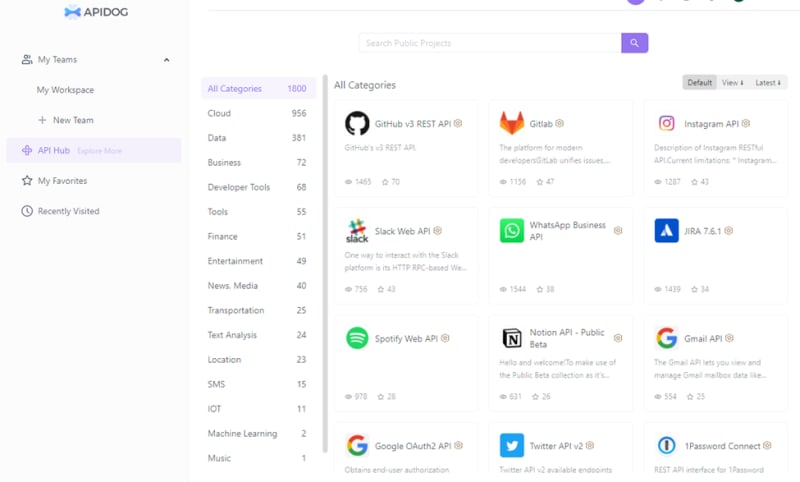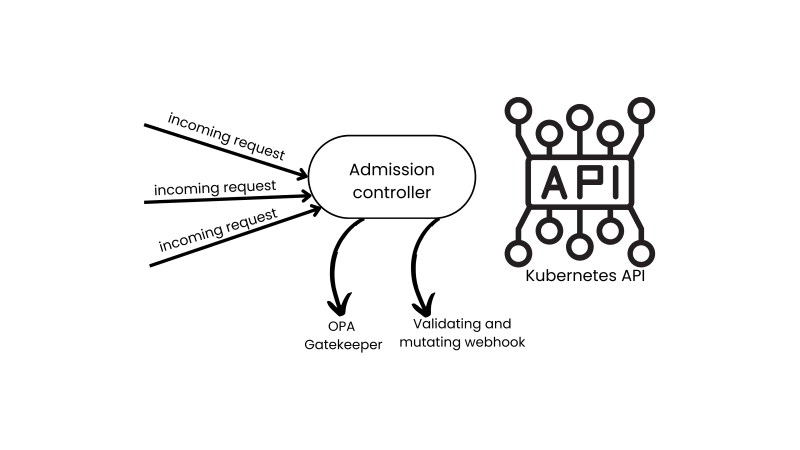Application Programming Interfaces (APIs) serve as integral tools in the world of software development, enabling various programs to interact and share data seamlessly. APIs can be broadly classified into two types: Private APIs, which are restricted for internal use within a company, and Public APIs, accessible to anyone interested in utilizing them.
Introduction to Free APIs
Free APIs are available at no cost and are often provided by entities to foster the integration of their services or data into broader applications. These APIs can range in functionality from fetching external data, interfacing with other web services, or facilitating task automation, without incurring costs.
Developers interact with these APIs through specific programming commands or protocols to request data or services, providing necessary parameters. In turn, the API delivers the requested information back to the developer.
Advantages of Using Free APIs
Leveraging Free APIs offers a series of benefits including:
Resource Efficiency: They expedite development by offering ready-to-use features.
Expertise at Hand: Users gain from the continual enhancements influenced by expert maintenance.
Focus on Core Development: They allow developers to concentrate on building distinctive application features rather than on rudimentary components.
Scalability: They are built to manage incrementally increasing loads and user demands efficiently.
Current Integration: Regular updates ensure alignment with contemporary advancements and technologies.
Step-by-Step Guide to Employing Free APIs
To effectively use free APIs, follow these outlined steps:
Assess Requirements: Clearly identify the exact functionality or data needed from the API.
Select a Competent Provider: Utilize platforms like Apidog API Hub, known for reliability.
Account Registration: Complete the sign-up process with the API provider.
Choose Suitable API: Select an API that aligns closely with your requirements.
Comprehend Documentation: Understand the API’s capabilities and constraints thoroughly through its documentation.
Obtain API Key: Secure an API key that facilitates access and use of the chosen API.
API Testing: Verify API functionality using tools designed to test and debug APIs.
Integrate API: Embed the API within your project to enhance its capabilities.
By following these detailed steps, developers can effectively find, test, and utilize free APIs in their projects, enriching application functionalities without overhead costs.
Criteria for Excellent Open APIs
A robust open API should exhibit:
Clarity in Documentation: It should offer straightforward usage directions and examples.
Customizability: Flexibility to tailor the API to specific developer needs should be a given.
Robust Security: Essential to safeguard user data and interactions.
High Availability: It should ensure minimal downtime and reliable user access.
Stable & Consistent: Crucial for developers expecting predictable performance.
Active Community Support: A supportive ecosystem can enhance developer experience and problem-solving.
Exploring Apidog API Hub
Apidog API Hub is a comprehensive platform hosting an assortment of Free APIs across multiple domains such as finance, weather, and social media. The hub aids developers in discovering and integrating these APIs efficiently into their applications.
Features of Apidog API Hub include:
API Management: Tools to handle API keys, monitor usage, and performance.
Collaboration Tools: Facilities for team cooperation and API sharing.
Enhanced Security: Ensures secured API interactions.
Ease of Integration: Seamless compatibility with various development tools.
Dedicated Support: Assistance for API integration and troubleshooting.
To start using Free APIs from Apidog API Hub, simply visit the website, register, and explore the plethora of APIs available, tailored to meet various development needs.
Example APIs Offered by Apidog
Apidog API Hub offers diverse APIs like:
OpenWeatherMap: Provides comprehensive weather data globally.
NewsAPI: Accesses contemporary news from multiple sources.
Twitter API: Facilitates interaction with Twitter data.
Google Maps API: Enables incorporation of map features.
Alpha Vantage: Offers extensive financial market data.
These APIs provide a wide range of services, facilitating extensive application functionalities.
Best Practices for API Utilization
Ensuring efficient use of free APIs involves:
Thorough Documentation Review: Understand every facet of the API thoroughly.
Awareness of API Limits: Recognize and adhere to usage limitations.
Graceful Error Handling: Implement user-friendly error responses.
Data Caching: Optimize performance and limit requests by caching data.
Monitoring Usage: Keep track of performance and adapt usage as needed.
Adhering to these practices ensures reliable and efficient API use, enhancing overall application performance and user satisfaction.
Implementing Free APIs with Apidog
Apidog’s API Hub offers an invaluable resource, providing access to multifarious APIs that bolster application functionalities at no extra cost. The platform’s expansive API collection, coupled with robust management tools and support, makes it an ideal choice for developers aiming to enhance their applications efficiently.
Explore the transformative potential of Free APIs by signing up at Apidog API Hub and start enriching your applications today.




